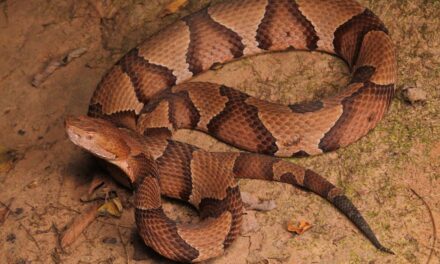Captivating colors, a docile temperament, and a manageable size – ball pythons have become the poster child for beginner-friendly pet snakes. But before you rush out and get your own cuddly constrictor, there’s more to the story than meets the eye.
Gentle Giants:
Let’s start with the positives. Ball pythons, also known as royal pythons, are known for their calm demeanor. They rarely bite, and their coiling behavior, which gave them their name, is usually a defensive tactic rather than aggression. This makes them less intimidating to handle compared to some other snake species.
A Rainbow of Choices:
Unlike their monochromatic reputation, ball pythons come in a stunning array of color morphs, bred to create beautiful patterns and variations. From classic albinos to intricate spider combos, there’s a ball python to suit every aesthetic preference.
Enclosure Essentials:
Their size is another plus. Ball pythons typically reach 3-5 feet in length, making them easy to accommodate in a well-maintained terrarium. However, setting up the right environment is crucial. You’ll need a heated enclosure with proper humidity levels, hiding spots, and a substrate that retains moisture. Maintaining these conditions requires research and commitment.
The Feeding Factor:
Here’s where things get a bit trickier. Ball pythons are obligate carnivores, meaning they exclusively eat live or frozen/thawed rodents. While some readily accept frozen prey, others can be picky eaters, refusing food for weeks or even months. This can be stressful for new owners, so be prepared for the possibility of needing to tempt your snake with feeding techniques.
Lifelong Commitment:
Ball pythons have a lifespan of 15-30 years, which means they’re a long-term responsibility. Consider your lifestyle and living situation before bringing one home. Are you prepared to care for a snake for potentially decades?
Easy to Handle:
While ball pythons are generally easy to handle, they’re not cuddly companions. They don’t enjoy being held for extended periods and prefer to explore their environment on their own terms. Additionally, they’re nocturnal creatures, so most interaction will happen during the evening hours.
Alternatives for Beginners:
If the feeding challenges or long lifespan concern you, consider other beginner-friendly snakes like corn snakes or kingsnakes. These species are typically less picky eaters and have shorter lifespans.
The Verdict:
Ball pythons can be fantastic pets, but they’re not perfect for everyone. If you’re a dedicated researcher, prepared for potential feeding issues, and understand the long-term commitment, a ball python can be a rewarding reptilian companion. However, for those seeking a low-maintenance pet with frequent interaction, other options may be a better fit.
Remember:
Owning any reptile is a responsibility. Always research the specific needs of the species you’re interested in and ensure you can provide proper care for its entire lifespan. By being prepared, you can give your pet snake a happy and healthy life.
Ball Python FAQs:
- Are ball pythons good for beginners? Ball pythons can be good beginner snakes, but they have specific needs like temperature, humidity, and feeding frozen rodents. Research well before getting one.
- How big do ball pythons get? Adult ball pythons typically reach 3-5 feet in length.
- Do ball pythons bite? Bites are rare, but they can happen. Ball pythons are more likely to curl up than bite when stressed.
- What do ball pythons eat? Ball pythons are obligate carnivores and eat live or frozen/thawed rodents appropriate to their size.
- How long do ball pythons live? Ball pythons can live for 15-30 years with proper care, so be prepared for a long-term commitment.
- What kind of habitat do ball pythons need? Ball pythons require a heated terrarium with proper humidity, hiding spots, and a moisture-retaining substrate.
- Are ball pythons colorful? Yes! Ball pythons come in a wide variety of color morphs with beautiful patterns.
- Can I handle my ball python? While generally docile, ball pythons aren’t cuddly pets. Handle them gently and for short periods, respecting their need for privacy.
- Are ball pythons nocturnal? Yes, ball pythons are most active at night, so expect evening feeding and interaction.
- What are some alternative beginner pet snakes? Consider corn snakes or kingsnakes if feeding challenges or lifespan concerns you.





